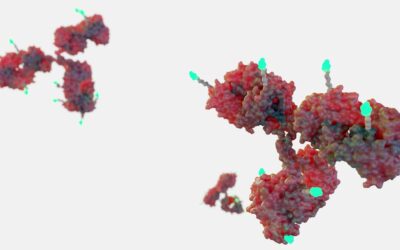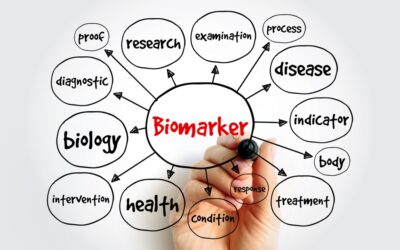Antibody-drug conjugates (ADCs) are offering hope to cancer patients worldwide. This novel treatment combines the precision targeting of antibodies with the cancer cell-killing power of cytotoxins, delivering treatments directly to tumors and minimizing damage to healthy tissues.
Safety Assessment
The Essential Role of Biomarkers in Modern Medicine: From Disease Diagnosis to Treatment Optimization
Despite centuries of medical progress, simultaneously monitoring the human body’s many processes and co-occurring reactions remains difficult. In recent years, researchers have added a crucial tool to understand what’s happening—the ability to measure biomarkers.
Application of Protein Biomarkers in Pharmaceutical Research and Bioanalysis Strategies
The term “biomarker” first appeared in a 1947 paper on fetuin-A detection. Biomarkers are defined characteristics measured as indicators of normal biological processes, pathological processes, or biological responses to exposure or drug intervention, including therapeutic interventions.
Why Communication is Essential to Non-clinical Testing
Non-clinical testing is a high-stakes process where efficiency and accuracy are paramount. Mistakes can cost time and money and, more importantly, derail drug development.
The Vital Role of Toxicity Studies in New Drug Development
Toxicity studies are vital to the drug discovery process. Through rigorous testing, researchers compile all the necessary data to understand a new drug’s safety profile and advance it toward patient use.
IND Studies: Understanding Early-Stage Regulatory Needs
Bringing new drugs and therapeutics to a global market requires extensive planning. Requirements for soliciting early-stage regulatory feedback differ across geographies, so it might be tempting to file new drug submissions separately.
Unlocking the Potential: Navigating Non-Clinical Programs for Biotherapeutics
As the field of biopharmaceuticals continues to expand, drug developers are faced with the critical task of planning non-clinical programs for biotherapeutics.
Everything Drug Developers Need to Know to Prepare for IND Submissions
Drug sponsors looking to initiate clinical trials for new products must first secure approval from regulators. This authorization can only be granted following an Investigational New Drug (IND) submission, and the entire development process is on hold until approval is granted.
Key Components of IND Study Strategy Planning
A successful Investigational New Drug (IND) submission requires a comprehensive testing approach. From Drug Metabolism and Pharmacokinetic (DMPK) studies to determine the drug’s behavior within the body, nonclinical toxicology assessments to meticulously examine its safety profile, and Bioanalytical studies to measure drug concentrations in biological samples, the process plays a critical role in drug development.
A Step-By-Step Guide to Successful IND Studies
Investigational New Drug (IND) studies play an essential role in the drug development journey. This testing helps researchers foresee safety concerns and estimate the most efficacious starting doses for clinical trials.
Finding the Best Lab Partner for your IND Submission
A successful Investigational New Drug (IND) application is imperative for research involving human participants ingesting or applying a drug product. Sponsors can take several potential regulatory pathways, but all pose unique challenges and requirements. The right laboratory testing partner can ease this process, avoiding longer timelines and bloated budgets. Drug sponsors should consider these three key areas before selecting a lab partner.
A Step Forward in Oligo Therapy: A New Assay for Testing Oligo Stability in Plasma
Oligonucleotides (oligos), including small interference RNAs (siRNAs) and antisense oligonucleotides (ASOs), represent a novel class of therapeutic agents capable of precisely targeting and regulating gene expression. This precision allows the potential treatment of various diseases, from genetic disorders to cancers, by silencing harmful genes or correcting genetic abnormalities.











